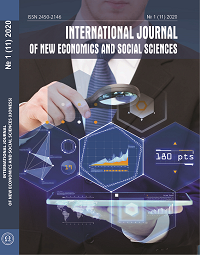THE PERCEPTION AND DEFIES OF POLYGAMY IN THE BAMALI COMMUNITY, CAMEROON. A POST-COLONIAL SURVEY
THE PERCEPTION AND DEFIES OF POLYGAMY IN THE BAMALI COMMUNITY, CAMEROON. A POST-COLONIAL SURVEY
Author(s): Eugene Muambeh MuntohSubject(s): Social Sciences
Published by: Międzynarodowy Instytut Innowacji "Nauka - Edukacja - Rozwój"
Keywords: Polygamy; Marriage; Bamali; Relationship; Family
Summary/Abstract: In the Bamali community of Cameroon, just as in other parts of Africa, polygamy was an important aspect of indigenous culture which was widely acceptable and practiced by many. Monogamy was regarded as a form of weakness given the fact that the might and pride of a man was measured in accordance with the number wives and children he had. This paper seeks to examine the perception of polygamy and its defies in the Bamali community. It highlights the basis of polygamy among the Bamali people, and also explores the impact of polygamous marriages on the family. The paper sustains the argument that, despite the fact that polygamy was widely accepted and practiced by many, it had devastating effects on family happiness. In order to achieve this goal, the paper made appeal to some selected primary and secondary sources and the con-clusions were drawn after a qualitative historical analysis. The paper concludes by stating that, polygamy was an inherent cultural practice of the Bamali people which resisted cultural extinction and has moved into a revolutionary dimension to trans-cend the various historical periods.
Journal: International Journal of New Economics and Social Sciences IJONESS
- Issue Year: 11/2020
- Issue No: 1
- Page Range: 331-338
- Page Count: 8
- Language: English, Polish

